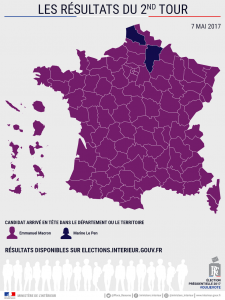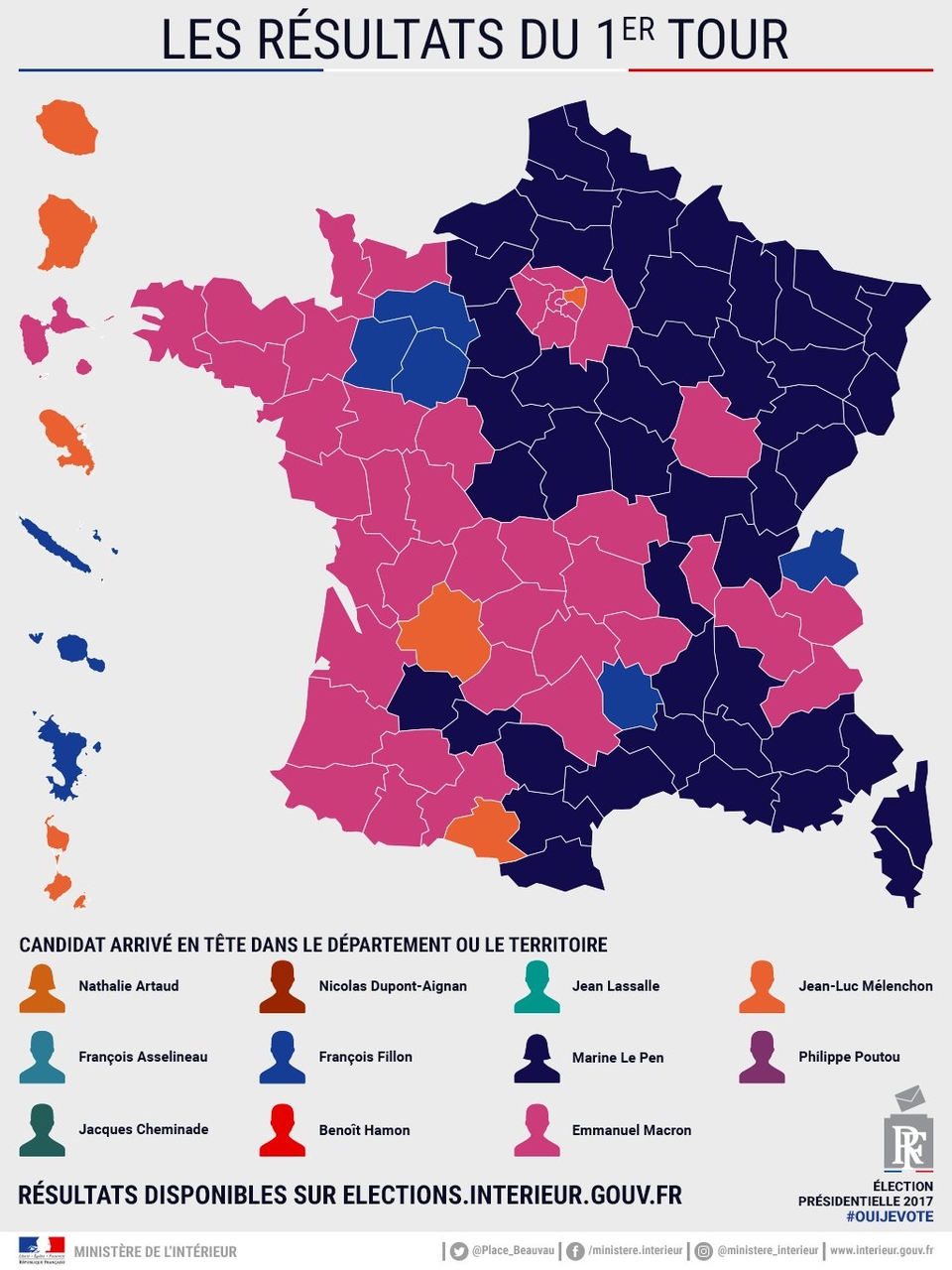France had lowest vote presence in the last 50 years. The vote presence in EU at the most recent elections
France registered in the second round of the presidential elections the lowest vote presence in the last 50 years. Even like this, the vote presence in the country was higher than that registered in other European countries in the past 20 years.
Following the election on Sunday, Emmanuel Macron became the new president of France, after he won over his far-right counter-candidate Marine Le Pen, with over 66% of the votes.

Although the second round of election is decisive to the fate of a country, at the final confrontation between Macron and Le Pen there were 1,5 million fewer Frenchmen than in the first round, with the difference between April 23 and May 7 being of over 3 percentage points, according to the Ministry of the Internes in France.

Five years ago, when François Hollande and Nicolas Sarkozy made it to the final round, the vote presence was of around 80% in both rounds. In 2007, when Nicolas Sarkozy won presidency over Ségolène Royal, almost 84% of Frenchmen with voting rights came and expressed their option.
15 years ago, when Marine Le Pen’s father, Jean-Marie Le Pen made it to the final battle, the vote presence in the second round was of almost 80%, with Jacques Chirac then winning presidency with over 82% of votes in front of his counter-candidate. This was the best result obtained by a French president in the second round, 8% more than the one obtained by Napoleon Bonaparte in 1848, when France had its first presidential elections.
A lower presence in the second round than now was recorded in 1969, when 68,85% of the Frenchmen with voting right came out to choose between Alain Poher and Georges Pompidou, with the latter winning over his counter-candidate with 58,2% of the votes.
On the other hand, compared to the past 50 years, the highest vote presence in the second round, of 87,33% was recorded in 1974, when the French chose Valéry Giscard d’Estaing with 50,8% of the votes, against François Mitterrand.
What was the voting presence in the EU’s most developed countries at past elections
Within the EU, regarding the 10 wealthiest countries according to their GDP, the presence at the latest elections, at which citizens were called to the urns to decide the fate of the country, was rather high, with Poland being the only exception.
In Germany, the European country with the largest GDP in the EU, saw over 44,3 million people coming to the federal elections in September 2013, representing 71,5% of the citizens with voting rights. The party led by Angela Merkel, the Christian-Democratic Union, obtained 41,5% of the votes in the Bundestag.
The United Kingdom, which has the second contribution to the EU GDP, decided last year, following the referendum in June, to leave the community. The voting presence was then of 72,2%, when 51,9% of citizens with voting rights decided to leave the Union.
In Italy, at the last legislative elections in 2013, almost 75,2% of the electors were present, with the left Italian coalition led by Pier Luigi Bersani then winning most seats in the Chamber of Deputies.
In Spain, a country that is also one of EU’s largest economies, the vote presence in the last elections was of almost 66,5%, with the Popular Party led by prime minister Mariano Rajoy winning a third of the seats in the parliament in Madrid.
As a result of the ascension of extremist Geert Wilders, who was supporting the exit of The Netherlands from the EU, the electors mobilized and showed up in high numbers, with the country registering a record presence for the last 30 years, of almost 80%, but with 8% less than the maximum recorded in 1977. Following the vote expressed in March, liberal Mark Rutte obtained a third term as prime minister.
Sweden, another country with a strong economy on a European level, had a vote presence of 85,8% at the last general elections in 2014. The Swedish left coalition was then the winner.
Out of the top 10 EU countries regarding the GDP, Belgium registered the highest presence at the last elections. In 2014, when the Belgians were expected at the urns to express their option at the federal elections, the vote presence was of almost 89,5%, in the context in which the vote presence is compulsory in the country. The elections were then won by Flemish separatists.
In the case of Austria, the electors were called to the urns two times last year, in May and December, due to fraud suspicions regarding the spring elections. The presence to the presidential elections in Austria in 2016 was of 74,2% in December, after in May 72,7% of the electors expressed their option in the second round.
The presidential elections in Austria had a re-vote following a decision from the Constitutional Court, which had noticed the that Austrian electoral law had been disregarded and that 700,000 mail votes had been miscounted, influencing the results, although there was no evidence that the counting was manipulated. The suspicions wee enough for the elections to take place was again, though.
Norbert Hofer, candidate of the Freedom Party of Austria, supporting an anti-immigration policy and with far-right positions, lost the elections in May 22 by 31,000 votes. In December, his counter-candidate, independent Alexander van der Bellen won the elections with a percentage of 53,8%.
Among the countries with lover vote presence in the second round of elections are Poland, Croatia, Greece or Bulgaria.
In Poland, a country in the top 10 EU economies, Andrzej Duda won the 2015 elections with 51,5% of the votes, with a vote presence of 55,34%.
The first female president of Croatia, conservative Kolinda Grabar-Kitarović, won by a very small diference the highest position in the state. She got 50,74% of the votes, with a difference between her and independent Ivo Josipović of 32,509.
The latest legislative elections in Greece also had a low vote presence, of only 56,5%. with the Syriza left-wing party of prime minister Alexis Tsipras being the top choice from the electors. In Greece, the president is chosen by the Parliament.
In Bulgaria, at the latest elections, when 50,4% of those signed up on voting lists showed up to vote, General Rumen Radev, former commander of the Bulgarian Air Forces, won by a percentage of 59,37%.
On the other hand, out of the countries with a low contribution to the EUP GDP, some of the citizens with strong civic spirit are the Cypriots, which showed up in great number at the urns. At the 2013 presidential elections, over 81,5% of those on voting lists expressed their option regarding the future head of state, with Nicos Anastasiades, president of the right-wing party DISY winning around 57,5% of the votes.